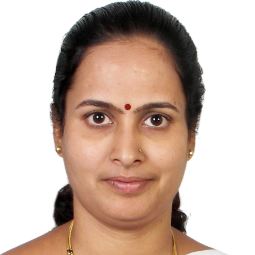
Jayashree D. Mallapur
Work place: Department of Electronics and communication, Basaveshwar Engineering College, Bagalkot, India
E-mail: bdmallapur@yahoo.co.in
Website:
Research Interests: Computer Networks, Network Architecture, Network Security
Biography
Dr. Jayashree. D. Mallapur: She is a professor in the department of Electronics and Communication Engineering, Basaveshwar Engineering College, Bagalkot, Karnataka, India. She has received B.E from Karnataka University, Dharwad, M.E from Gulbarga University and Doctorate from Visvesvaraya Technological University, Belagavi. She has 25 years of experience. Her area of interest is Wireless communication, Wireless network, fuzzy logic and multimedia communication. She has published 30 papers in National, International conferences and Journals. She is the life member of profession bodies like IEEE, ISTE, IEI and ETE.
Author Articles
Optimization of Resource Mining in Distributive Sharing (ORMDS) Scheme for Future Heterogeneous Network
By Satyanarayan K. Padaganur Jayashree D. Mallapur
DOI: https://doi.org/10.5815/ijitcs.2018.08.03, Pub. Date: 8 Aug. 2018
In future heterogeneous network communication systems, driven by the evolution of today’s most demanding applications, resource allocation and its mining will play an increasingly significant role in our daily life for different use of applications facing a rapid growth in data traffic demands recently. In this work based on future network architecture, we proposed a scheme called Optimization of Resource Mining in Distributive Sharing (ORMDS) for better utilization of in-house residual buffer to improve performance of the network in-terms of maximizing the efficiency, minimizing network delay, call drop and buffer mining. A distributed buffer allocation and mining in the framework is proposed to facilitate different multimedia application in future network. Resource is measured and updated in the buffer table of router. Buffer table is updated based on execution of optimization computation model, which uses optimization seeking model for determining the value of objective function. This minimum value of objective function will improve the resource utilization of the network. The proposed scheme reduces the mining time of the buffer in sharing system and optimizes the delay by using distributed sharing option. This ultimately gives optimum resource sharing at a different instant of time.
[...] Read more.Other Articles
Subscribe to receive issue release notifications and newsletters from MECS Press journals